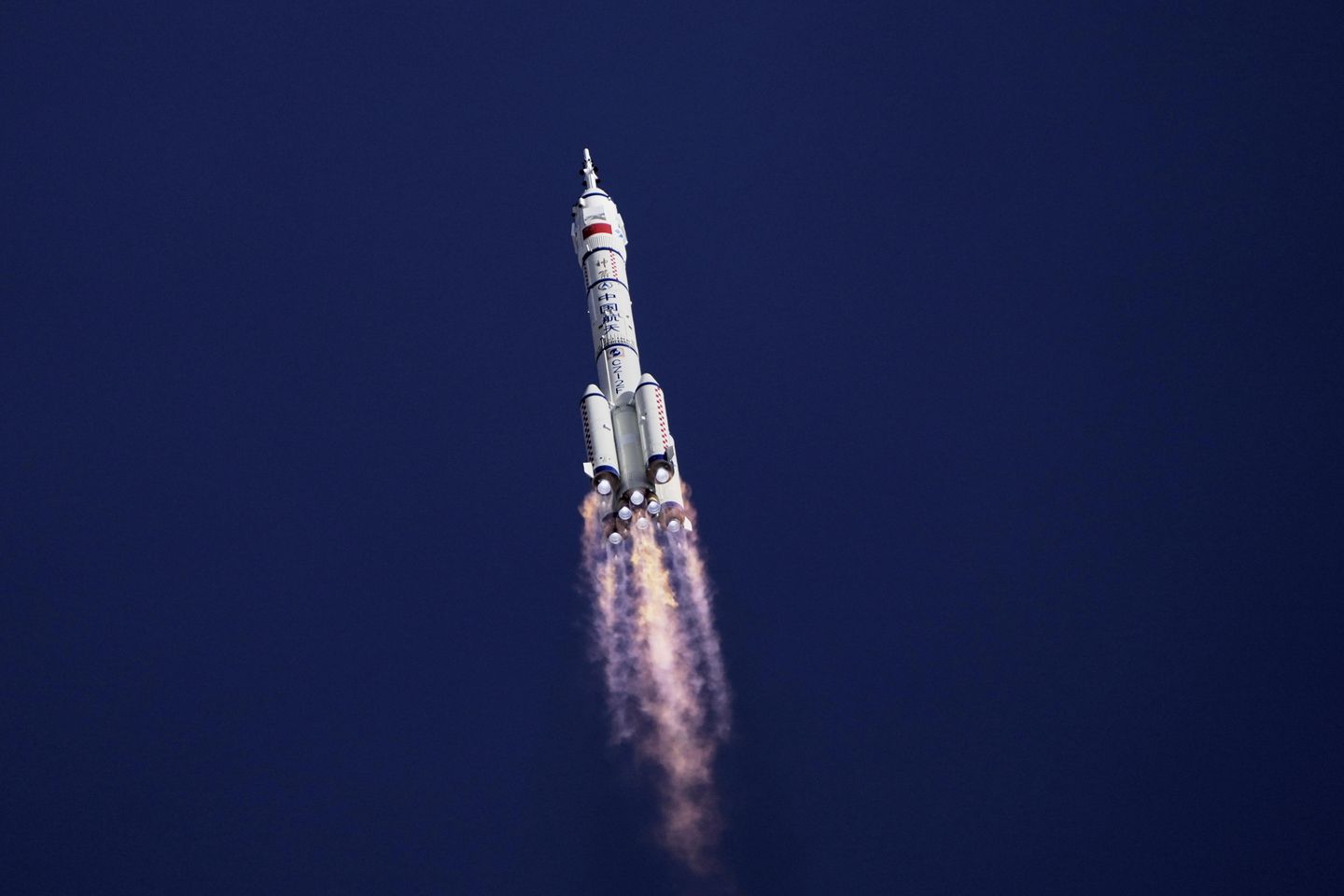
China and Russia have been militarizing space with anti-satellite weaponry for more than a decade, and the U.S. should move more quickly to develop advanced defensive and offensive capabilities in the futuristic domain. Here’s what you need to know about the space militarization warnings:
The 2015 turning point
China declared space a war-fighting domain:
- “Fundamental shift” came in 2015 when China “declared space a war-fighting domain”
- Robert Lightfoot, president of Lockheed Martin Space, spoke at Aspen Security Forum Wednesday
- “When they did that, they actually changed the narrative”
- Previously everything built was “to support things that are happening here on Earth”
The vulnerability problem
Current U.S. satellites lack protection:
- Network of current U.S. satellites “vulnerable because when they were first designed and built…there was no threat in space”
- Retired Space Force Lt. Gen. Nina Armagno appeared on Wednesday’s panel
- For decades, U.S. enjoyed “luxury” of not worrying about urgent space threats
- “We don’t have that luxury anymore” according to Armagno
The 2007 demonstration
China’s anti-satellite missile test changed everything:
- “Russia and China have built weapons and deployed them in space all the way back to 2007”
- China launched anti-satellite missile that “destroyed one of their own defunct weather satellites”
- Incident resulted in “thousands of pieces of debris”
- Community initially called it irresponsible but realized “This was a statement”
The expanded threat capabilities
China and Russia can now reach higher orbits:
- Originally demonstration was in low earth orbit
- “Today, they can reach geosynchronous Earth orbit, which is 23,000 miles above the Earth’s surface”
- “Russia [and] China have ground-based anti-satellite missiles”
- “In space, they can attack our satellites”
The multiple attack vectors
Various ways adversaries can target U.S. space assets:
- “Ways to attack our ground control stations”
- “We’re vulnerable to cyber attacks in space”
- “Everything is connected from the satellite…to the ground segment”
- “User equipment is your iPhone. All of those connections are vulnerable”
The Space Force response
Military branch established to protect domain:
- “The threat is real” according to Armagno
- U.S. Space Force “came into existence during the first Trump administration in 2019”
- Service “established to protect and defend the domain”
- Space Force budget grew substantially initially but has been “flat” in recent years
The Trump administration boycott
Current administration ordered military officials not to attend forum:
- Trump administration “ordered high-level U.S. military officials, who had been slated to appear, not to attend”
- Defense Department spokesperson said forum values “do not align with the values of the DoD”
- Pentagon spokesperson said forum promotes “globalism”
- Space Force Gen. Stephen Whiting replaced at last minute by retired Gen. Timothy Ray
The Golden Dome proposal
Trump pushes space-based missile defense system:
- Ray threw support behind Trump’s “Golden Dome” missile defense shield
- Response to growing ballistic missile and nuclear weapons threats from China and Russia
- Also addresses threats from “rogue actors such as North Korea and Iran”
- “It’s going to be key to our survival” according to Ray
The funding requirements
Massive investment needed for missile defense:
- Trump “already requested $25 billion for development of the Golden Dome”
- Administration indicated system development “will cost at least $175 billion”
- “Remains to be seen which agency within the Defense Department will operate the system”
- Space Force budget currently about 3% of DoD’s roughly $850 billion budget
The workforce challenge
China graduating more engineers than U.S.:
- Past decade has seen China “advance dramatically in the space domain”
- China “increased the number of satellites they have for intelligence, surveillance and reconnaissance by 500%”
- “China’s graduating ridiculously more engineers than we are”
- “How do we excite the next generation…to science, technology, engineering, math? That’s drying up”
The Aspen Forum context
Annual gathering faces political controversy:
- Comments came during opening panel of Aspen Security Forum
- Annual event organizers tout as bipartisan or nonpartisan
- Features top military and foreign policy officials traditionally
- Organizers “privately vented frustration” over Trump administration boycott
Read more:
• China changed narrative by weaponizing space, leading U.S. contractor says
This article is written with the assistance of generative artificial intelligence based solely on Washington Times original reporting and wire services. For more information, please read our AI policy or contact Ann Wog, Managing Editor for Digital, at awog@washingtontimes.com
The Washington Times AI Ethics Newsroom Committee can be reached at aispotlight@washingtontimes.com.










